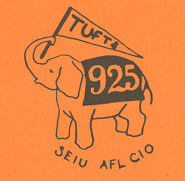Jean Schnell Quaker Meetinghouse Photograph Collection
After retiring from a career as a nurse and a health coach, Jean Schnell immersed herself in the photography world. Her work has been featured in numerous exhibits and shows throughout the New England region including the Moakley Courthouse in Boston, the S&G Gallery in New Bedford, Mass., the Martha’s Vineyard Museum, and the Davis Orton Gallery in Hudson, N.Y. In 2017, Schnell was a Critical Mass finalist. Her Quaker meetinghouse photographs have been featured in Lenswork and Yankee magazines. The Friends Journal published her article “Framing the Light: Quaker Meetinghouses as Space and Spirit” accompanied by her photographs.
In 2014, Schnell embarked on a project to photograph the twenty-three Quaker meetinghouses in Massachusetts. As a lifelong Quaker, Schnell sought to document the significance of the meetinghouses both as historic buildings and as spiritual spaces. Her collection contains photographic prints of the scenes she captured along with her notes, research materials, and various publications that include images from the project.



